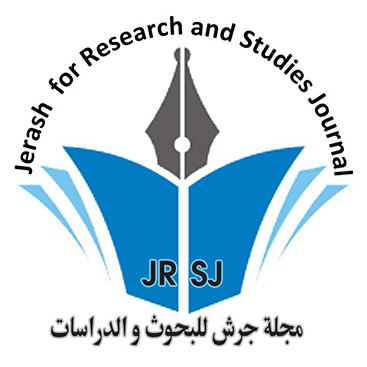Jerash for Research and Studies Journal مجلة جرش للبحوث والدراسات

Abstract
The study aimed at identifying the responsibilities and urgent roles of Arab think tanks and strategic studies centers in supporting administrative leaders against contemporary challenges and transformations. The study followed the descriptive survey approach (content analysis) for all the available literature, i.e. (37) elements, which entirely constituted the research community and its sample. After analyzing the data, the study reached a number of results, the most important of which are: The first global think tank was established in America in 1957, and in the Arab world, Egypt was the nucleus of these tanks. The Institute for Arab Research and Studies was established in 1952, then the National Research Center was established in 1956, and the Al-Ahram Center for Political and Strategic Studies was established in 1968, followed by the Center for Arab Unity Studies in Lebanon in 1975. Arab think tanks face multiple challenges, such as organizational, administrative, legal, political, financial, human, technical and informational challenges, which limit their ability to achieve their goals efficiently and effectively, with the exception of some centers that have recorded some considerable activity and clear achievements. The responsibilities of Arab think tanks and strategic studies are represented in supporting administrative leaders against contemporary challenges, by influencing public policies, supporting administrative leaders in obtaining the necessary data, supporting decision-making processes, predicting crises, studying contemporary problems and challenges, providing scientific insights on such challenges, producing knowledge, participating in achieving scientific and technological precedence, achieving developmental and sustainable improvement, bridging the gap between knowledge makers and decision makers, attracting scientific minds and limiting the migration of talents, bridging the relationship between active scientific and societal partnership parties, developing awareness, making peace, reconstructing war-affected countries, and analyzing local, Arab, regional and international affairs. In light of the results of the study, some recommendations were presented, most important of which are represented in working to institutionalize the work of think and study tanks and strengthening their institutional capacity, organizationally, administratively, financially, humanly, technically and informationally, in order to help them perform the tasks entrusted to them efficiently and competently.
Recommended Citation
الخطيب, خليل and النصراوين, معين
(2023)
"Responsibilities of Arab Think Tanks and Strategic Studies Centers in Supporting Administrative Leaders against Contemporary Challenges and Transformations,"
Jerash for Research and Studies Journal مجلة جرش للبحوث والدراسات: Vol. 24:
Iss.
2, Article 20.
Available at:
https://digitalcommons.aaru.edu.jo/jpu/vol24/iss2/20

